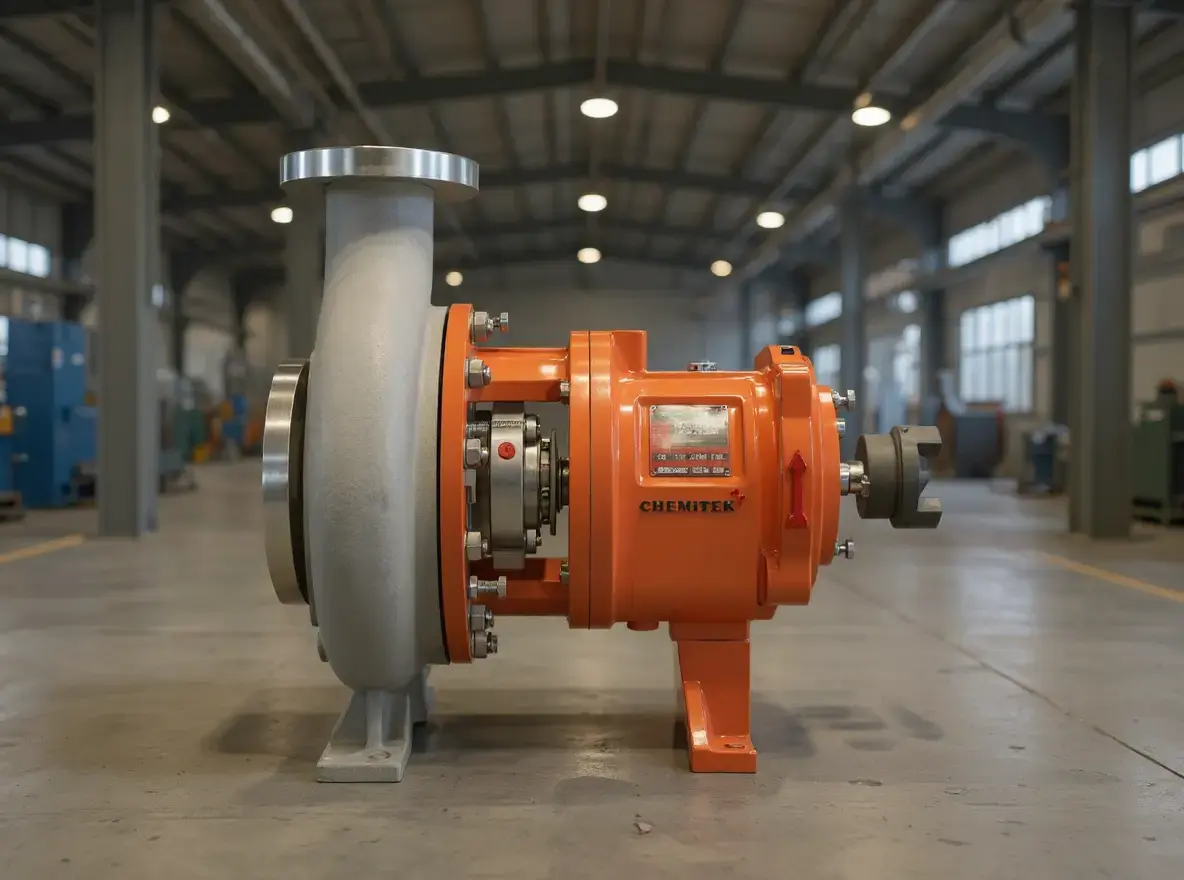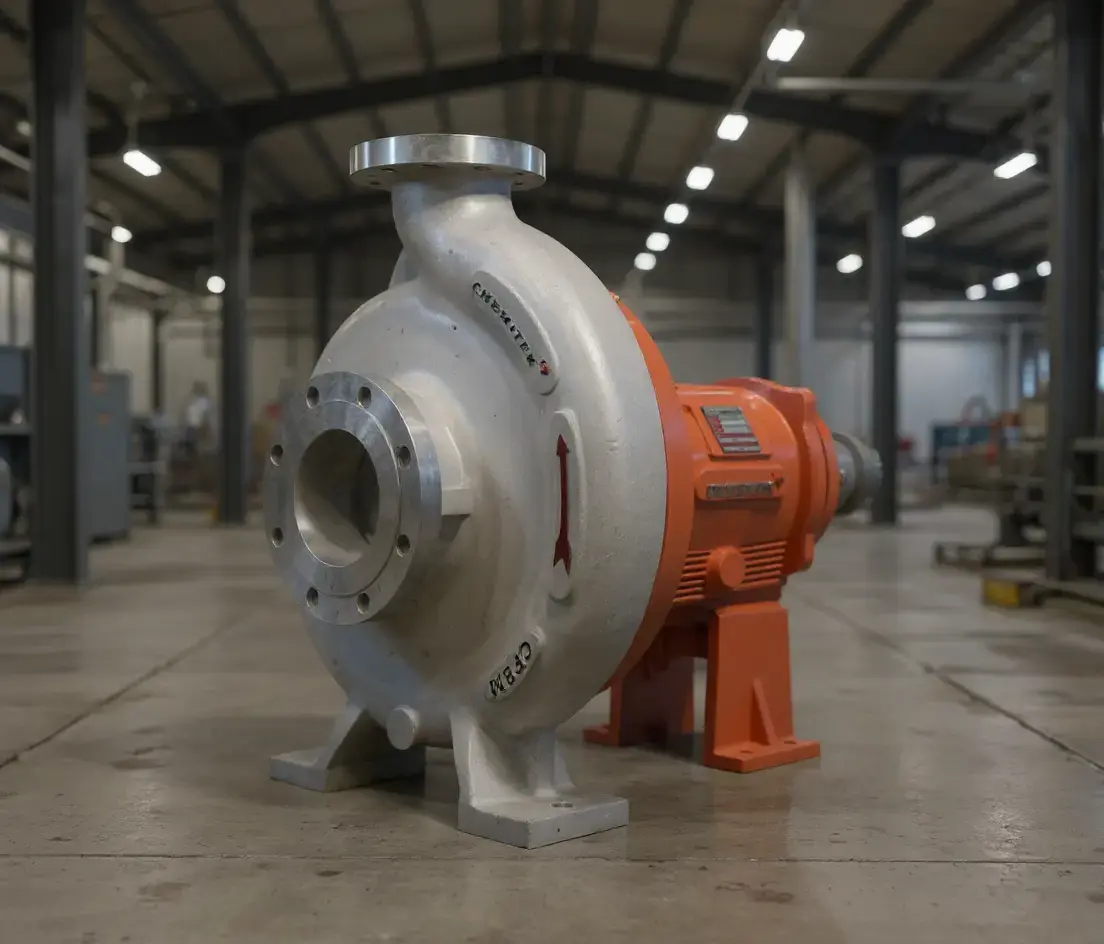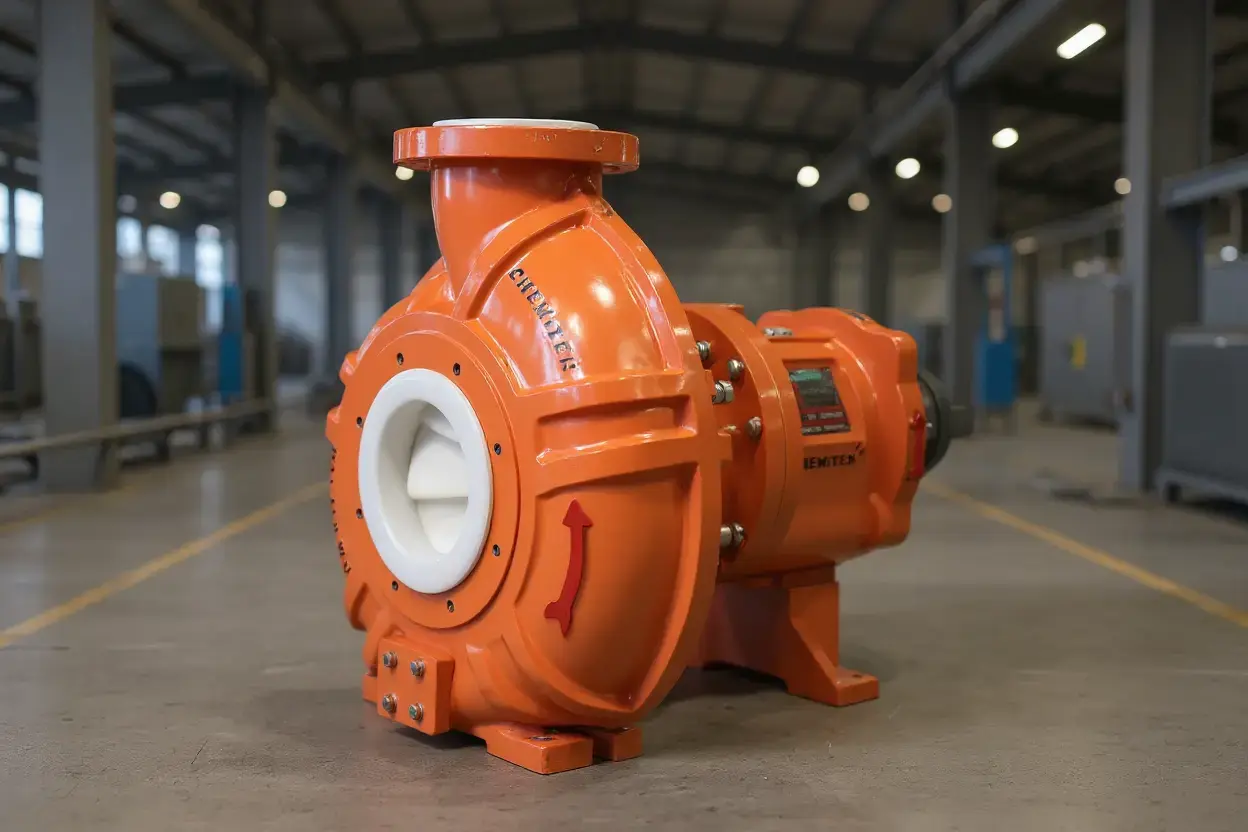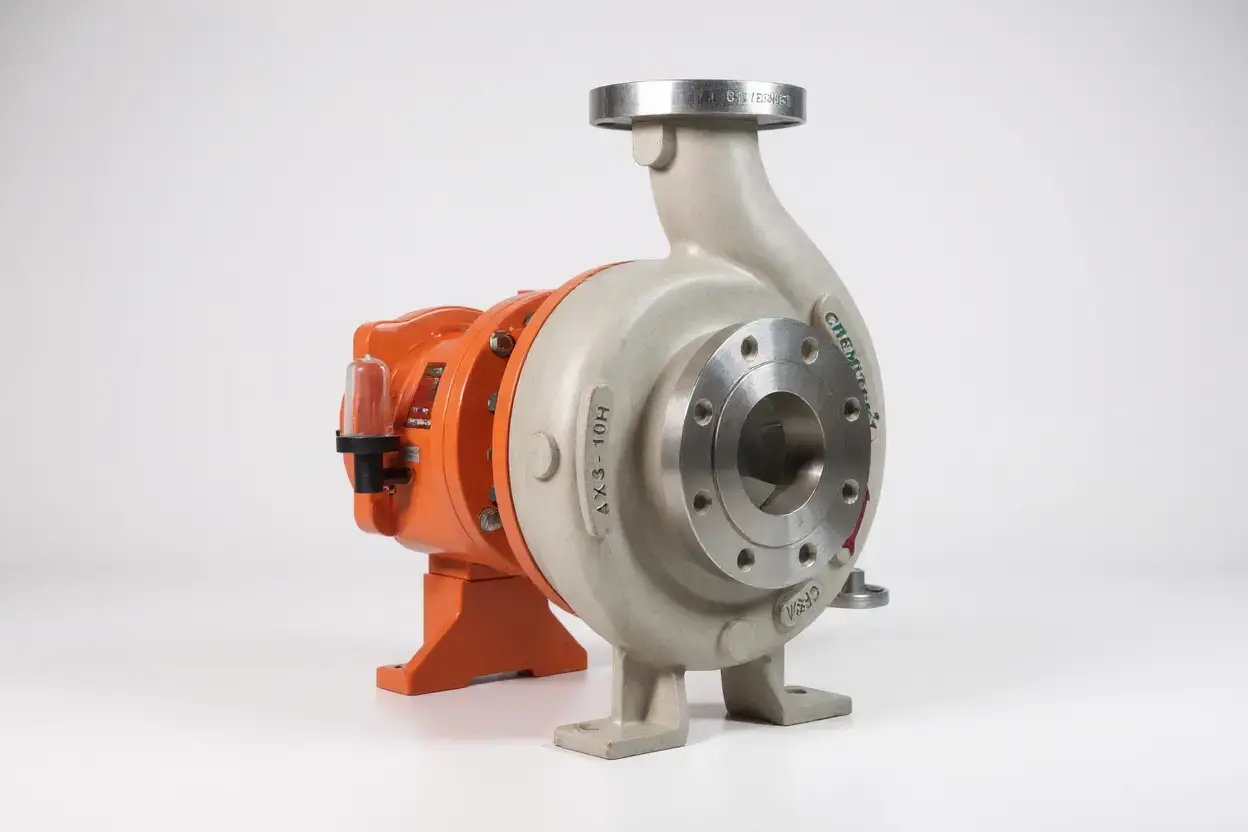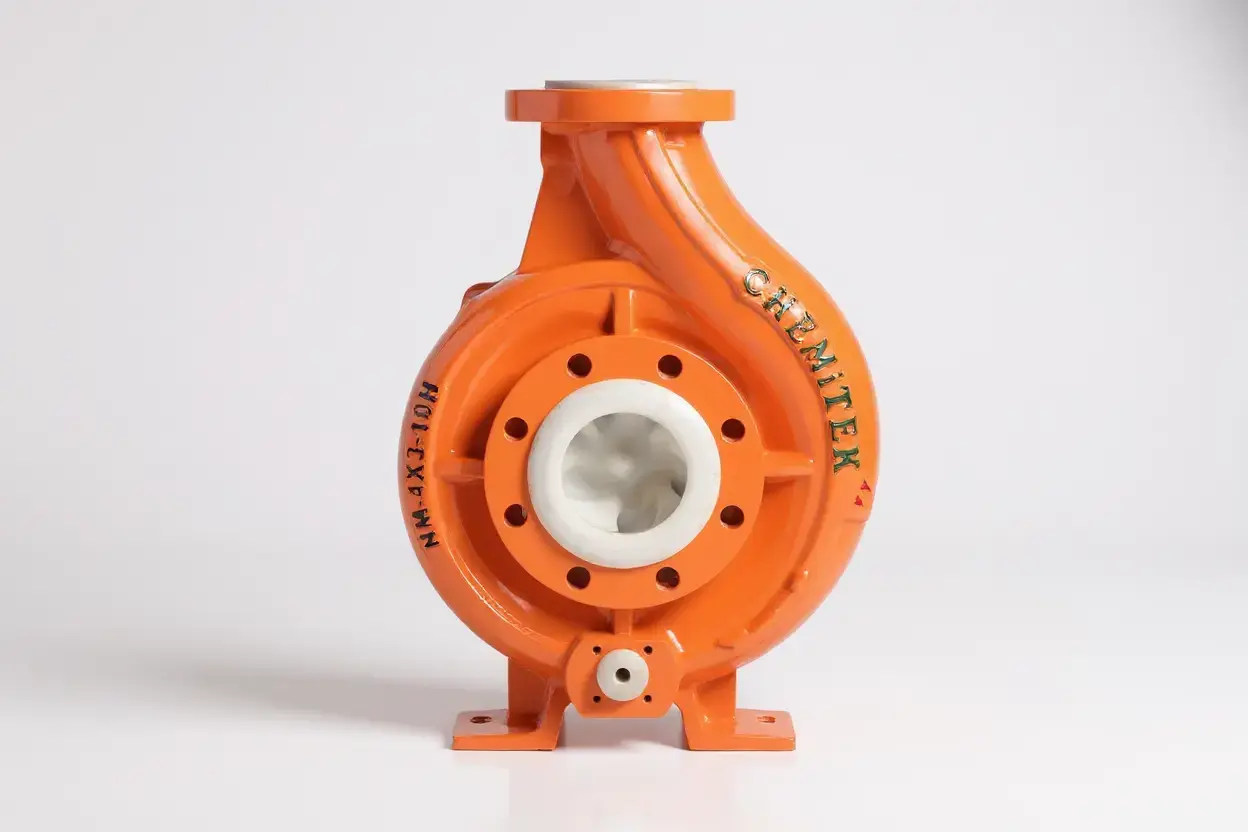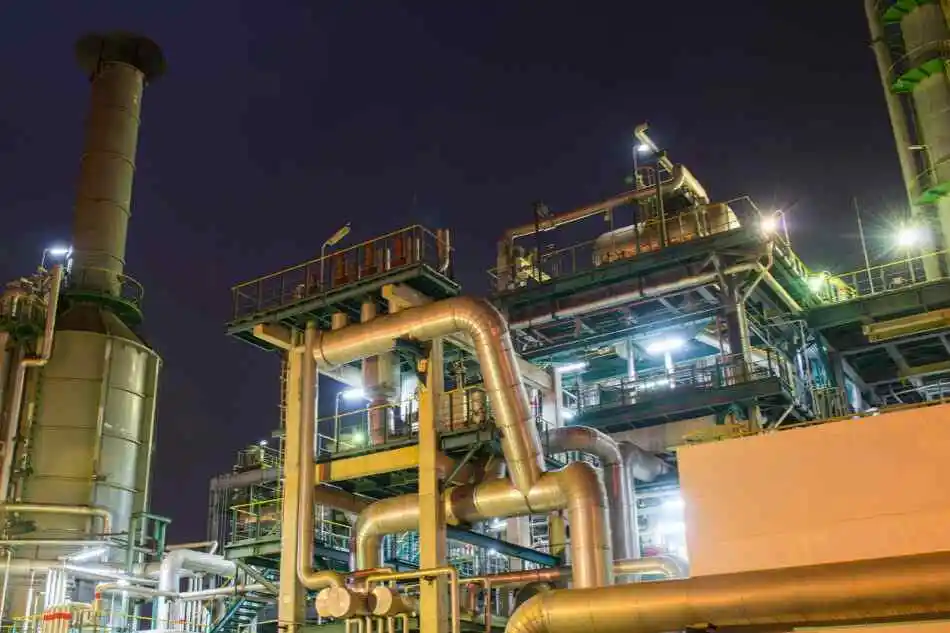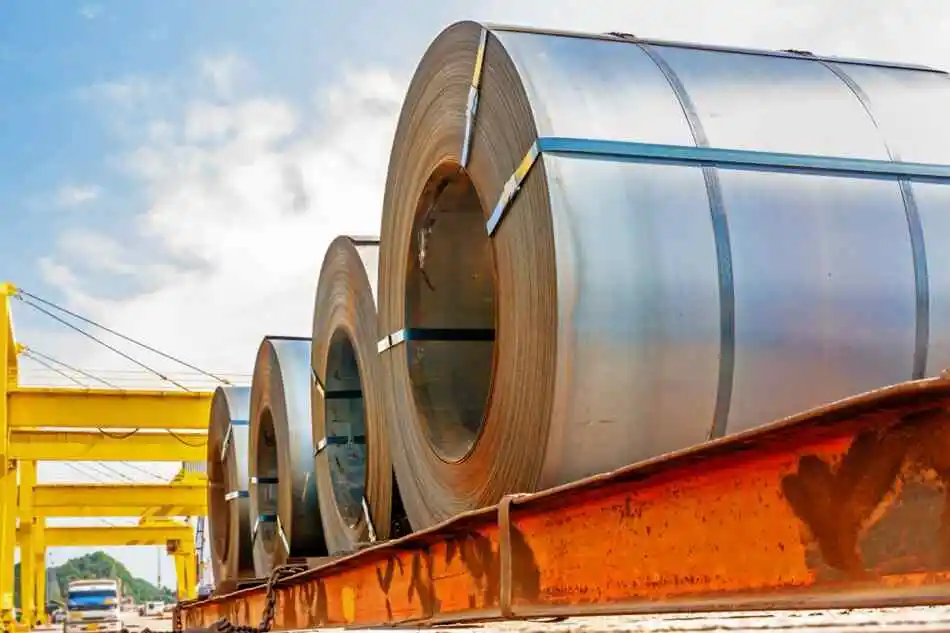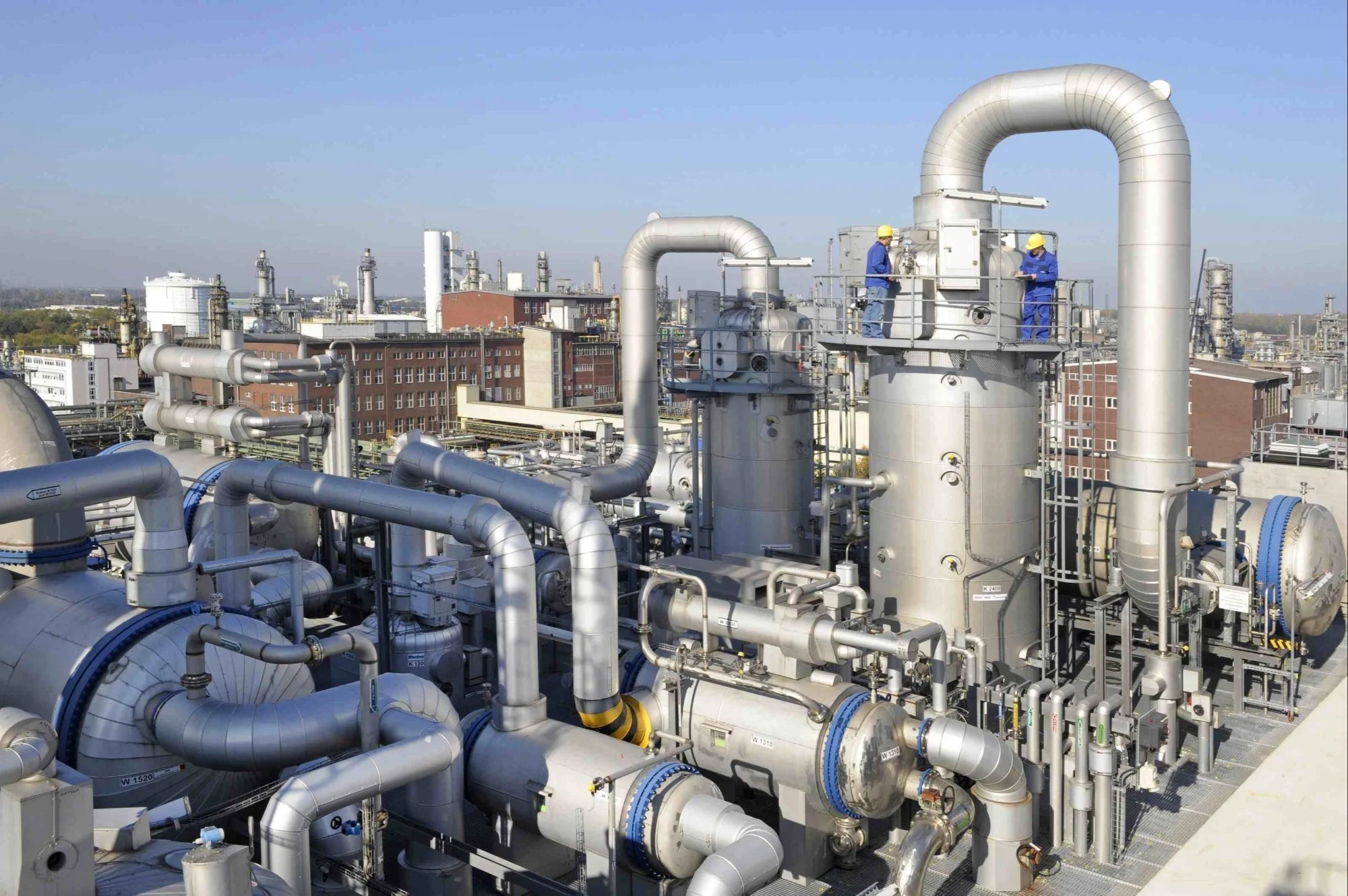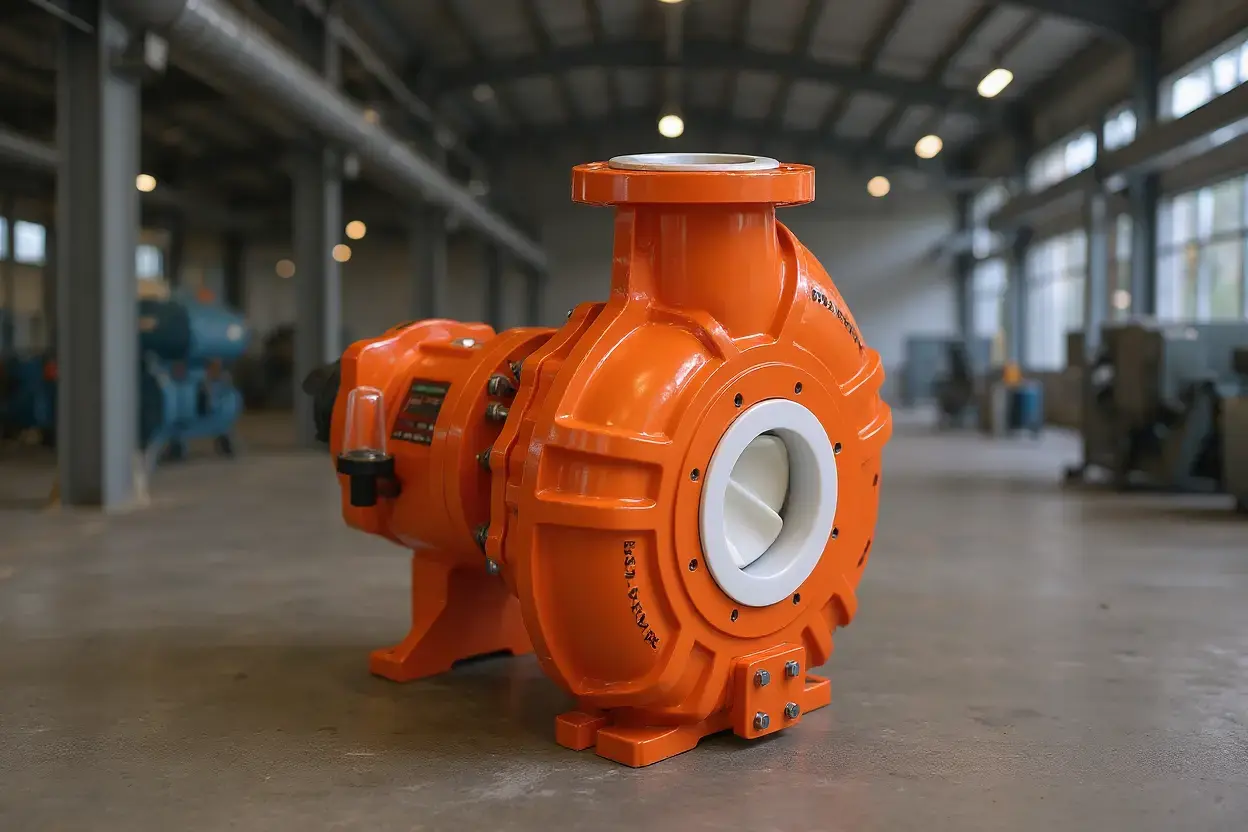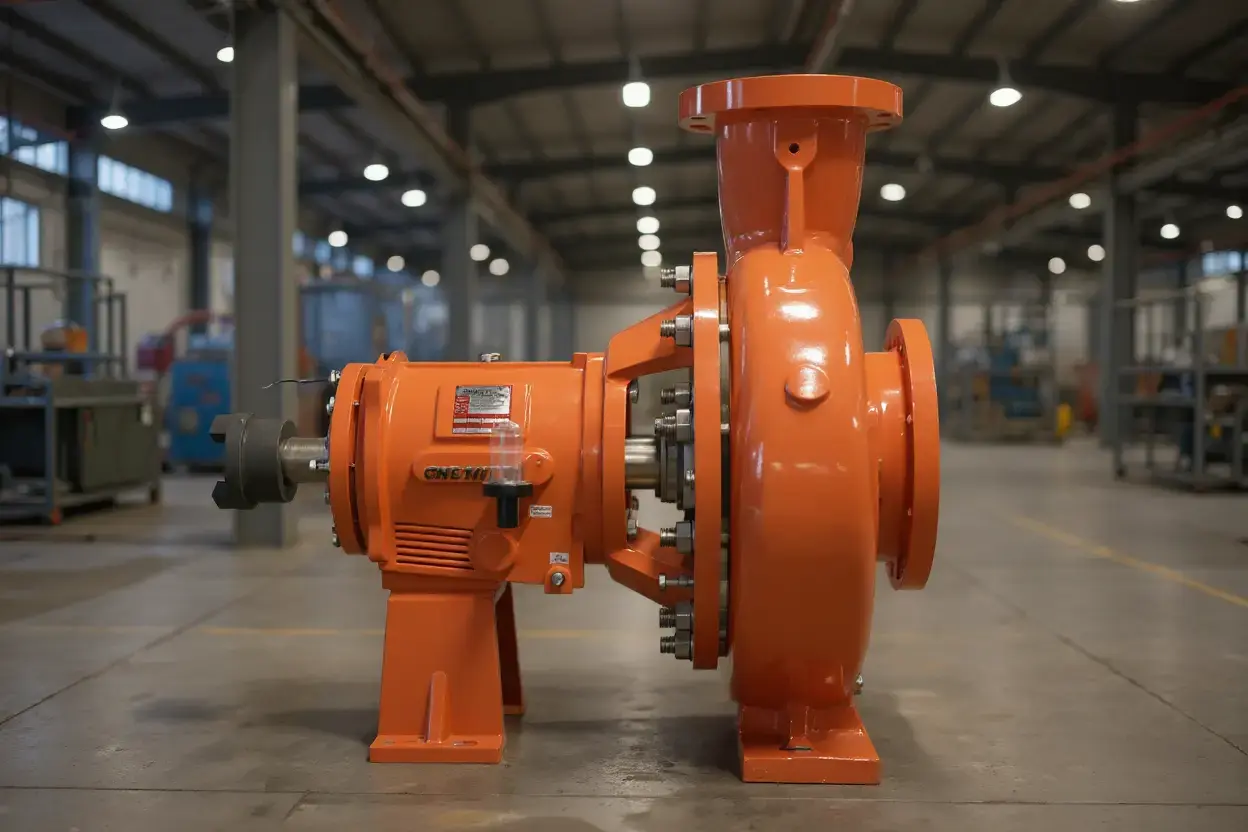What Makes ANSI Pumps Different?
An ANSI pump is not simply another centrifugal design; it is a globally recognized benchmark for chemical process pumping. Governed by the ANSI/ASME B73.1 standard, these pumps are defined by critical dimensions, hydraulic performance, and safety requirements that make them compatible across manufacturers.
This means predictable lifecycle costs and reduced spare parts inventory. The ANSI centrifugal pump standard ensures safe handling of corrosive or hazardous chemicals without risking leakage. Its ability to meet GMP, ISO, and audit requirements makes ANSI process pumps indispensable across regulated sectors.
Key Benefits of ANSI Compliance
- Dimensional Interchangeability: Drop-in replacement capability across manufacturers
- Hydraulic Consistency: Predictable performance under corrosive and high-temperature duties
- Safety Assurance: Standardized sealing and bearing performance reduce leakage risks
- Cost Efficiency: Lower installation costs and streamlined spare parts management
Understanding the ANSI/ASME B73.1 Standard
The ANSI centrifugal pump standard (ANSI/ASME B73.1) defines physical dimensions, performance tolerances, seal chamber sizes, and bearing life expectations. Centrifugal pump ANSI designs are widely adopted across chemical plants, refineries, and power stations because of this consistent framework.
Why the Standard Matters
Hydraulic Stability: Pumps deliver predictable head and flow within a defined performance band, minimizing cavitation risk. Drop-in Replacement: Spare parts, seals, and even full pump units can be swapped between suppliers, lowering inventory costs and ensuring faster repairs. Safety Assurance: Standardized shaft sealing and bearing performance reduce leakage risks, a critical factor for EHS teams handling corrosive or toxic streams.
Types of ANSI Centrifugal Pumps
While the ANSI/ASME B73.1 standard fixes pump geometry and dimensions, variations exist to meet diverse operating demands across chemical, petrochemical, water treatment, and industrial sectors.
Standard ANSI Process Pumps
Horizontal, end-suction, single-stage designs forming the backbone of ANSI compliance. Widely used in refineries, fertilizer plants, and bulk chemical facilities where cross-brand compatibility is essential.
High Efficiency ANSI Pumps
Feature optimized impellers and tighter hydraulic tolerances. Deliver consistent head and flow while reducing energy losses—ideal for lowering OPEX without compromising uptime.
OEM ANSI Centrifugal Pumps
Built to ANSI dimensions but customized for packaged systems like skids, reactors, or dosing modules. Standardization allows replacement from different suppliers without redesigning systems.
Heavy-Duty ANSI Process Pumps
Incorporate duplex steels, exotic alloys, and reinforced bearings to withstand high temperatures, corrosive solvents, or abrasive slurries in demanding applications.
Materials and Engineering for ANSI Pumps
Not every chemical process is the same, and neither are the requirements for an ANSI centrifugal pump. While the ANSI/ASME B73.1 framework fixes geometry and dimensions, it does not dictate metallurgy. That's where performance diverges.
304 Stainless Steel
Common in cost-sensitive plants but best suited for mild duties only. Provides basic corrosion resistance for less demanding applications.
316L Stainless Steel
Widely used in pharmaceutical and food-grade ANSI chemical process pumps because it combines corrosion resistance with GMP compliance requirements.
Duplex & Super Duplex Steels
Essential for heavy-duty applications where thermal cycling and high chloride content would rapidly damage lesser materials.
Exotic Alloys
Hastelloy and Titanium are critical for handling oxidizing acids, solvents, or high-pressure alkali services in the most demanding environments.
Industry Applications of ANSI Process Pumps
Because every ANSI centrifugal pump is built to a uniform dimensional standard, its applications differ not by geometry but by how the standard is applied across sectors where reliability and interchangeability are critical.
Chemical & Petrochemical
Industrial ANSI chemical process pumps enable drop-in replacement across refineries and plants, ensuring rapid recovery when downtime could cost millions.
Pharmaceutical & Biotechnology
GMP-ready builds where interchangeability shortens validation cycles while keeping solvent transfer compliant with regulatory requirements.
Food & Beverage
Stainless-lined ANSI centrifugal process pumps handle CIP and sterilization under FDA and HACCP regulations without compromising hygiene.
Power Generation
High-pressure boiler feed duties rely on ANSI pumps with duplex or titanium builds, meeting both dimensional and safety requirements.
Water & Wastewater
Safe ANSI centrifugal pumps reduce leakage risks while ensuring compatibility with chlorinated or caustic effluents.
Global Supply and Sourcing Considerations
Sourcing ANSI pumps often means balancing speed with customization. Many industrial operators rely on ANSI centrifugal pumps for sale through local distributors, which provide fast access for standard chemical or water transfer duties. These off-the-shelf models work well in predictable applications with moderate performance demands.
For more demanding environments such as corrosive solvents, high-temperature fluids, or compliance-sensitive processes, standard supply is not enough. In such cases, engineered builds from specialized ANSI centrifugal pump manufacturers become essential, with metallurgy, impeller designs, and sealing systems tailored for safety and lifecycle reliability.
Chemitek's Dual Approach
Chemitek bridges both needs by offering OEM ANSI centrifugal pumps for equipment manufacturers alongside custom builds for end-users with complex duty cycles. As a global ANSI chemical process pumps manufacturer and exporter, Chemitek provides ISO-certified production, lifecycle documentation, and reliable spare parts support.
Ensuring Long-Term Reliability with ANSI Pumps
Reliability in ANSI compliant pumps is defined by predictability across decades of duty. Because every ANSI centrifugal pump standard specifies seal chambers, shaft sizes, and bearing life, operators can manage lifecycle costs with confidence.
A high-efficiency ANSI centrifugal pump lowers energy usage without drifting outside the defined hydraulic performance band. Standardized impellers and seals minimize cavitation losses, extending service life while ensuring compatibility with spares from any compliant source. For EHS teams, adherence to the ANSI centrifugal pump standard ensures reduced leakage risk, even when pumps are upgraded or replaced mid-lifecycle.
In heavy-duty environments, ANSI centrifugal process pumps for high-load chemical and petrochemical duties deliver long-term stability where generic pumps would fail. By sourcing from Chemitek, operators gain more than ANSI compliance; they secure predictable uptime, simplified spares management, and audit-ready equipment designed for global industrial operations.
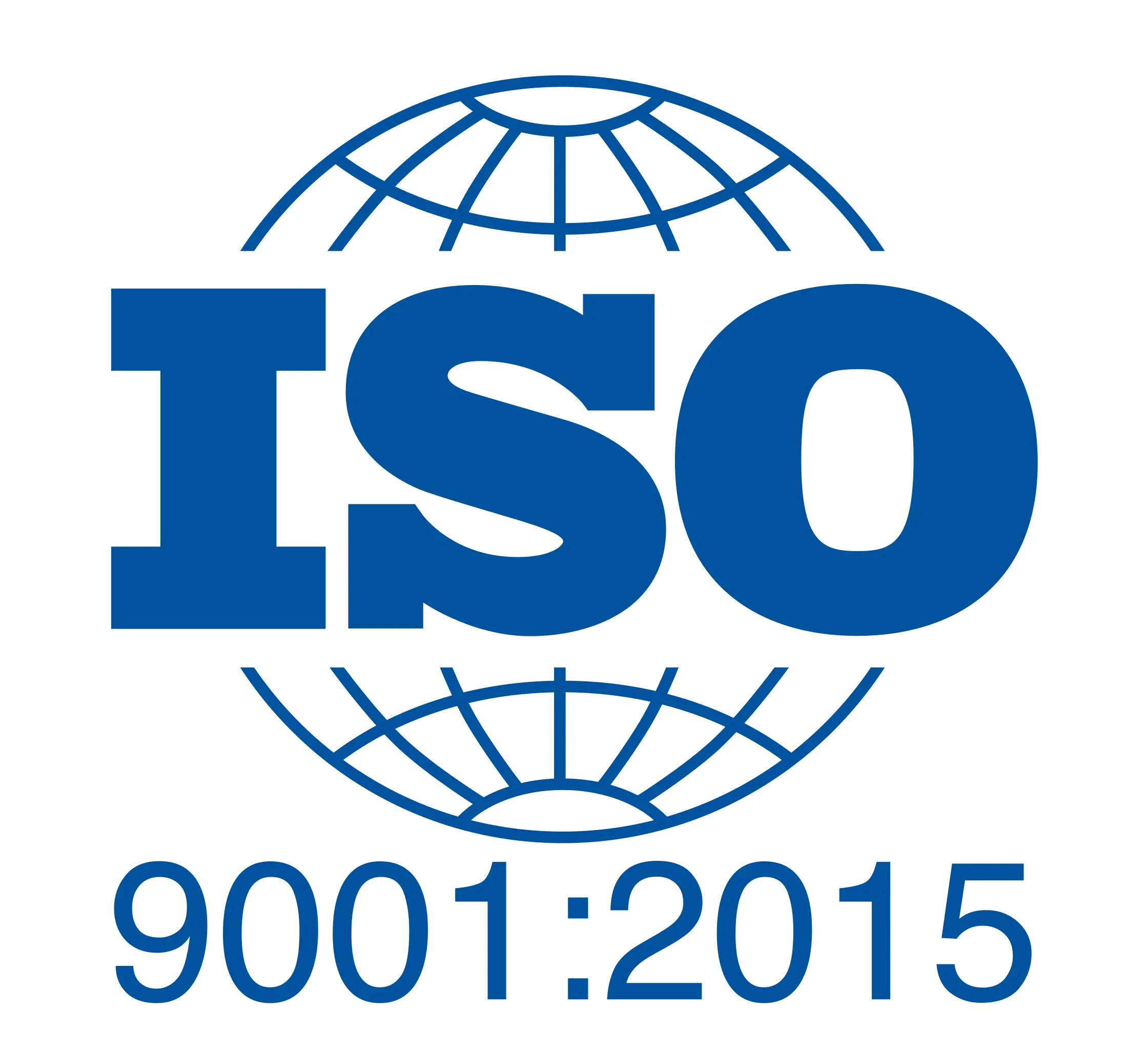 ISO 9001:2015 certified
ISO 9001:2015 certified
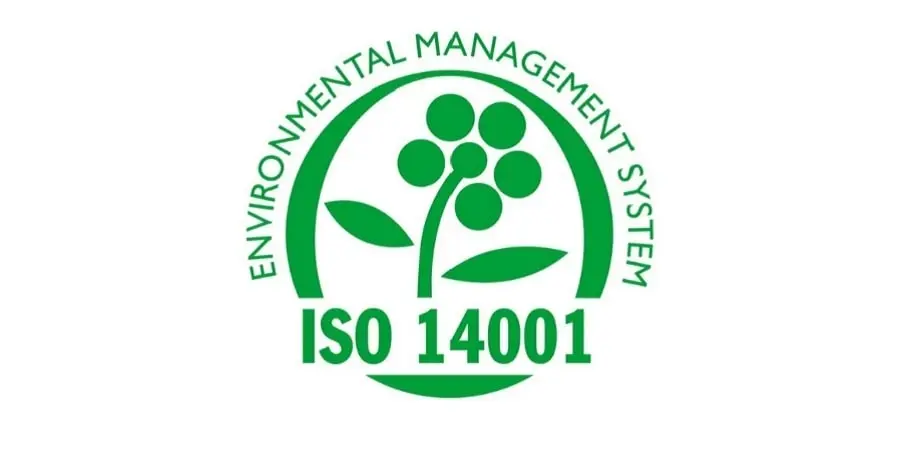 ISO 14001:2015 certified
ISO 14001:2015 certified
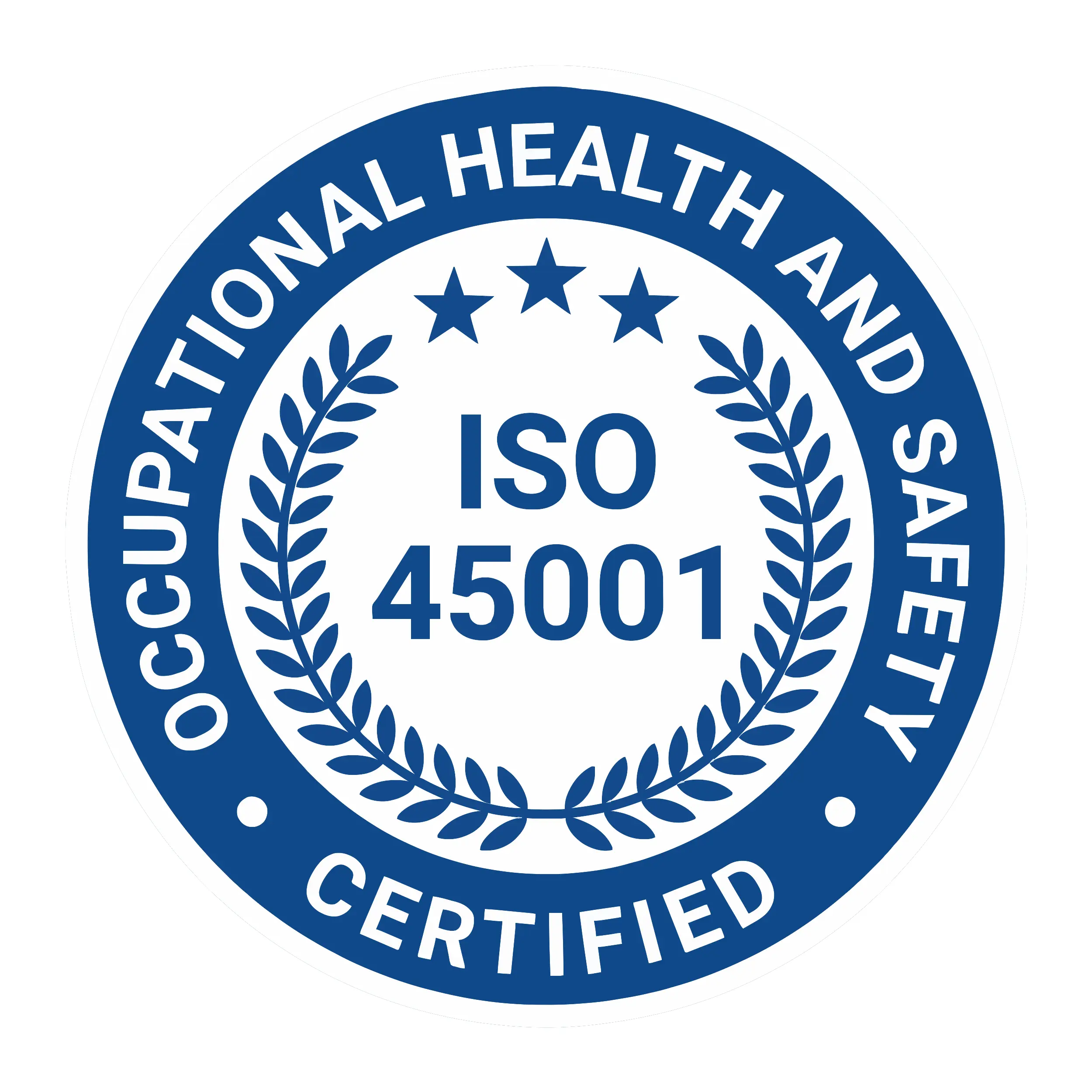 ISO 45001:2018 certified
ISO 45001:2018 certified
